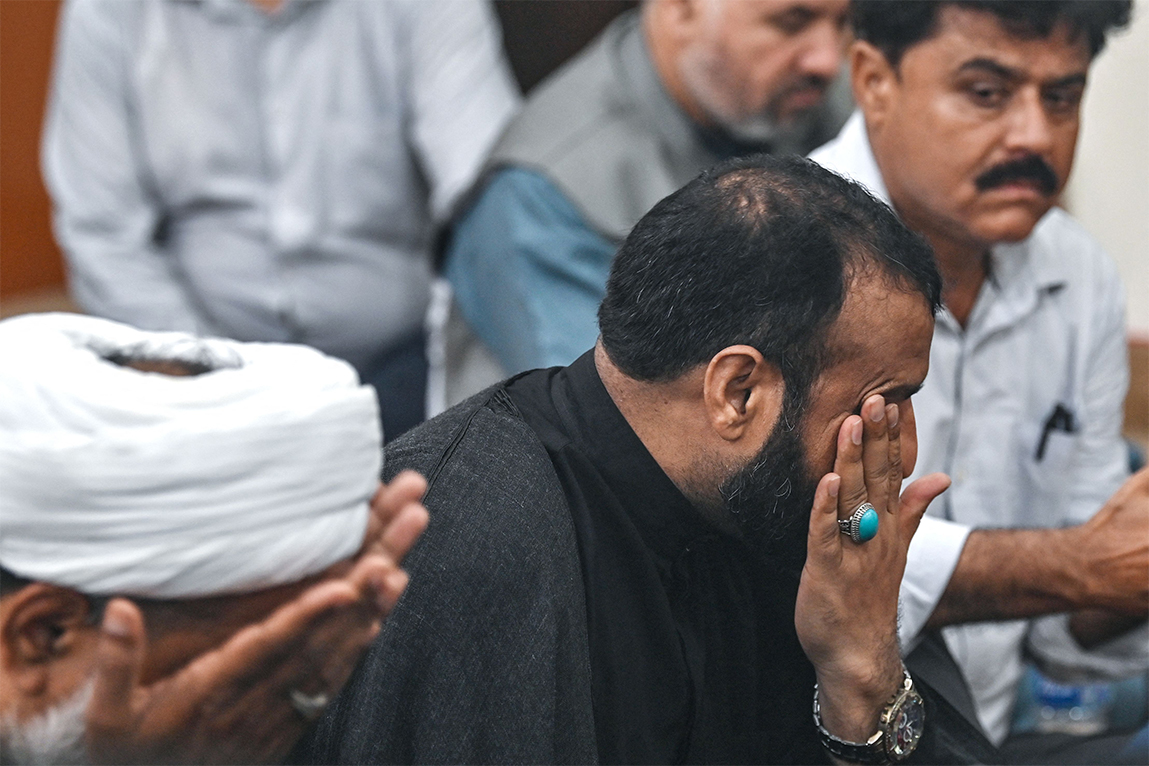KARACHI: Ali Rehbar, a 38-year-old delivery boy, broke his fast and left for work in the southern Pakistani city of Karachi last week during the holy fasting month of Ramadan. His family awaited his return to have pre-dawn sehri meal to keep fast for the next day, but they received a call from a hospital instead asking them to receive Rehbar’s body.
The 38-year-old was one of 48 people who have reportedly died while attempting to resist street muggings — a crime that seems to be unstoppable in Pakistan’s largest city and commercial capital — in the last three months.
While a recent police report mentioned 29 deaths between Jan. 1 and Mar. 14, local media puts the tally at 48 so far this year, revealing a grim reality about the loss of a human life every other day. However, a Karachi police spokesperson told Arab News on Monday of only 17 fatalities and 145 injuries during the last three months.
The persistent discrepancies in police records and reported incidents point to a lack of will on the part of authorities to tackle the issue seriously, while residents of the city say they have run out of patience after having lost dozens of people in back-to-back incidents.
“We can’t take it anymore. So many people have died. This has to stop,” said Ali Shehpar, Rehbar’s brother, who plans to organize a protest this week to highlight the issue of rampant street crime.
“What happened to our brother must not befall others. We want to tell [the authorities] that we’re still alive and we won’t let more loved ones die.”
Shehpar shared that his family was devasted since the death of his brother and wanted no one to face such an ordeal. “We’re not mourning or crying, but sometimes, when we’re quiet, memories of our brother come flooding back,” he added.
Saqib Sagheer, a Karachi-based journalist covering crime and security issues, attributes the surge in street crime to police corruption, appointments of police station in-charges without merit and to some “external factors.”
“Statistics reveal a troubling trend: two-thirds of apprehended criminals have a history of prior incarceration. In the long term, the Sindh government must undertake a comprehensive restructuring of the prosecution department based on merit,” he said. “Specialized and competent prosecutors should be appointed to handle cases involving street crimes.”
Sagheer also urged bar associations to suspend licenses of lawyers who repeatedly represented individuals suspected of involvement in street crime.
On Sunday, Ghulam Nabi Memon, the newly appointed Sindh provincial police chief, presided over a meeting and assigned 67 top officers to investigate street crime cases.
But Provincial Home Minister Zia-ul-Hassan Lanjar later shocked many, when he told reporters that “crime is a part of daily life.” The minister accused the media of exaggerating the statistics.
While Lanjar didn’t respond to repeated attempts by Arab News for a comment, father of one of the street crime victims said these incidents were occurring “every day.”
“People are losing their lives every day and it seems like no one cares,” said Muhammad Hussain, father of 22-year-old BBA undergrad Muhammad Laraib, who was killed during a mugging attempt on March 4.
“It feels like the laws of our country are non-existent when it comes to apprehending culprits. My son was simply going about his routine, attending the mosque and my shop, and studying.”
Hussain said his wife had since been in distress.
“Every step she takes is a painful reminder of her loss,” he told Arab News. “We were making preparations for his wedding, but now... we are left grappling with grief.”
He said when the Karachi police chief visited them last month, he had only one request: “I begged him to save the children of other mothers.”
Zoha Waseem, an assistant professor at the Department of Sociology, University of Warwick who has also authored a book on corruption within Karachi police, said street crime could not be curtailed through police reforms alone.
“In fact, policing is not a sufficient response to crime. Prevention is contingent upon tackling social and economic causes that lead people to committing criminal acts,” she said, highlighting an increase in inflation with nearly 40 percent Pakistanis living below the poverty line.
“Serious efforts need to be made by the government to address these social and economic issues. It is not enough to say that “crime is a part of daily life”. We cannot resign to this fact.”

















